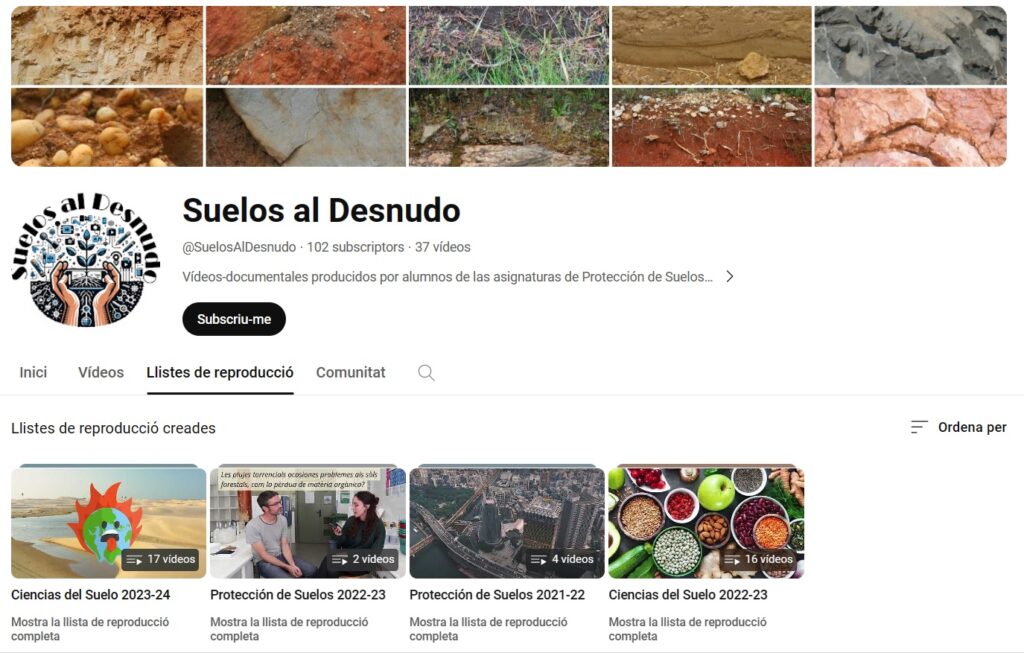Case study: Naked soils, a documentary production by university students

Photo acknowledgement: Universitat Autònoma de Barcelona (UAB)
- Tertiary/Higher Education
- Indoor
- Film / documentary
- Spain
Naked soils – documentary production by university students
Naked Soils: Documenting degradation from the root (in Spanish: Suelos al Desnudo:, in Catalan: Documentem la Degradació des de l’Arrel) is an innovative teaching initiative funded by the Faculty of Sciences at the Universitat Autònoma de Barcelona (UAB) in Barcelona, Spain. It aims to educate and raise awareness about the importance of soil among university students enrolled in Environmental Biology and Environmental Sciences degree courses about the significance of soil, its biodiversity, and its role in climate regulation.
The project employs an educational and innovative approach, using documentary production as a pedagogical tool, whereby students create documentary videos addressing various soil degradation issues and proposing viable solutions.
Objective
The project’s primary objective is to enhance students’ communication skills, active learning, critical analysis, ability to discern reliable sources of information, and awareness about the importance of soil. Additionally, it aims to promote innovative teaching and learning methods in soil sciences within the university environment.
Approach
The project unfolds in two phases: an initial synthesis of the script and the final production of the video. The videos include interviews with external experts, researchers, and other professionals. These videos are uploaded to a dedicated YouTube channel, accessible to students from other disciplines and the general public. The students showcase their videos at a joint session at the end of the year, allowing them to learn from each other’s research and documentation work. Throughout the process, students receive feedback and their progress is evaluated.
Naked Soils stands out for its unique approach to soil education, leveraging information technology, social networks, and a communication channel that resonates with students. It integrates theoretical and practical learning, encouraging students to actively engage with environmental conservation issues. The methods employed are highly creative and participatory, aiming to impact not only students but also a wider community, thereby raising awareness about a critical issue for environmental sustainability.
